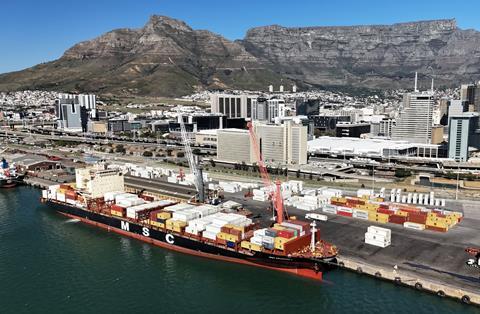Citrus sources say they are assessing the tariff announcements by US president Donald Trump
South Africa has been slapped with an across-the-board 30 per cent tariff increase on all products exported to the US.

The country’s citrus leaders are, however, taking a cautious attitude as they try to assess the situation and the effect on the country’s exports.
The new South African season is due to start with shipments at the end of April. This normally means fruit in containers, which will be followed by conventional reefer shipments at the end of May.
July onwards marks the major part of the season when the country’s sought-after late Mandarin crop starts.
Normally the country would export around 100,000 tonnes of citrus, during an important period for the US when domestic growers cannot supply the trade.
Paul Hardman, chief operating officer at the South African Citrus Growers’ Association (CGA), said the industry was assessing the potential impact of the tariff announcement.
“Citrus, unlike factory-produced products, is a seasonal fruit,” he explained.
”South Africa does not compete with the citrus producers of the United States. In fact, quite the opposite – we sustain customers’ interest when their local citrus is out of season, benefitting US citrus growers in the end.”
Every single year, South African growers “hand over” buyers to their counterpart growers in places like California, Arizona and Texas, Hardman noted.
“Citrus also plays an important role in the healthy diet of Americans,” he continued. ”Tariffs on seasonal fresh produce can possibly increase prices for the American consumer.
“We are in contact with our American counterparts to obtain as much clarification on the tariff announcement as possible.
”South Africa currently exports 9 per cent of its citrus to North America as a whole,” Hardman added. ”The American consumers have clearly developed a taste for South African citrus - with exports nearly doubling since 2017.
Less diplomatic leaders in the industry have said they found it strange that Trump stated that he would give sanctuary to white farmers, but in the end introduced measures that could bankrupt them.
“It does not make any sense to punish people which you say you want to help,” sources said.



